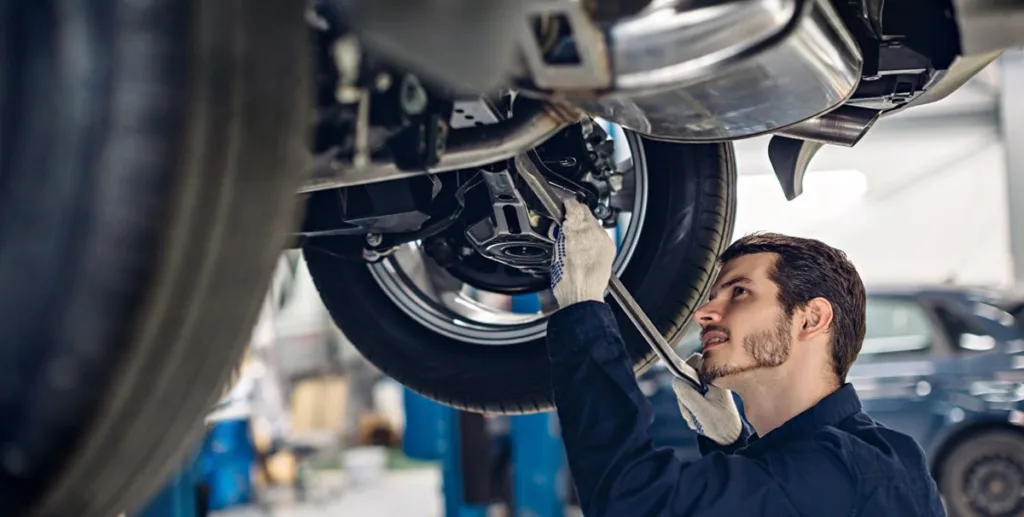All Categories
Featured
Your cars and truck is a vital part of your everyday life, and taking good treatment of it guarantees that it offers you accurately for many years ahead. While modern-day automobiles are made to be durable, disregarding proper upkeep can cause unneeded failures and expensive fixings. Below's how you can keep your car running longer and in peak condition.
- Adhere to Regular Upkeep. The structure of a lasting cars and truck is normal maintenance. Follow your maker's recommended upkeep timetable, which can usually be found in your automobile's owner's handbook. Normal jobs like oil adjustments, tire turnings, and brake checks prevent wear and tear and maintain your vehicle doing efficiently.
Disregarding oil modifications is just one of the quickest means to damage your engine. Clean oil guarantees proper lubrication and stops overheating. Depending on your auto and driving behaviors, oil adjustments are typically needed every 3,000 to 5,000 miles or as specified by the manufacturer.
- Inspect and Restore Liquids. Your vehicle counts on numerous liquids to operate smoothly. These include engine oil, transmission fluid, coolant, brake fluid, and power steering liquid. Low or dirty fluids can cause engine getting too hot, slipping equipments, and brake failure.
Make it a practice to examine fluid levels regularly. If you discover a substantial decrease in liquid levels, it might indicate a leak that requires prompt focus. Keeping fluids tidy and at the ideal degrees ensures your auto runs successfully and prevents expensive repair work.
- Watch on Your Tires. Tire maintenance is vital for both safety and performance. Poorly filled with air tires can lower gas effectiveness, cause irregular wear, and enhance the threat of blowouts. Check your tire pressure month-to-month and guarantee it matches the manufacturer's suggestions.
Turning your tires every 5,000 to 7,500 miles advertises even use and extends their life expectancy. In addition, inspect your tires for any type of signs of damage, such as cuts, bulges, or low tread deepness, and replace them when required.
- Replace Worn Parts on schedule. Neglecting worn-out parts can lead to bigger troubles in the future. For instance, failing to replace a worn timing belt can cause engine failing. Worn brake pads can damage rotors, leading to costly repairs.
Be proactive concerning changing parts such as stimulate plugs, filters, and belts according to the supplier's guidelines. Utilizing premium replacement components makes sure much better efficiency and longevity.
- Exercise Gentle Driving. The way you drive significantly impacts the life expectancy of your auto. Aggressive driving behaviors, such as fast acceleration, abrupt braking, and difficult cornering, put extra anxiety on the engine, brakes, and tires.
Rather, embrace smooth driving techniques. Increase progressively, keep a consistent speed, and brake gently whenever possible. This decreases damage on your auto's parts and improves gas performance.

- Secure Your Automobile's Outside. Maintaining your cars and truck tidy isn't just concerning appearances-- it has to do with avoiding damage. Dirt, road salt, and grime can create deterioration and corrosion, specifically in the undercarriage. Routine cleaning, specifically throughout winter season or after driving on salty roads, is essential.
Waxing your auto every couple of months offers a safety layer against environmental damages. Furthermore, park your car in a garage or utilize a car cover to shield it from rough weather and UV rays, which can discolor the paint and damage the inside.
- Don't Neglect Warning Signs. Dashboard caution lights are your auto's method of telling you something needs interest. Whether it's the check engine light, reduced oil stress, or tire pressure caution, dealing with these signals without delay can stop small issues from coming to be significant repairs.
If you notice uncommon noises, resonances, or changes in your car's performance, don't ignore them. A professional mechanic can detect and repair the trouble prior to it intensifies.
- Shop Your Cars And Truck Correctly. If you're not utilizing your car for an extensive duration, proper storage is key. Keep your car in a great, completely dry area to shield it from climate damage. Use a battery tender to maintain the battery fee and include a gas stabilizer to avoid the gas from degrading.

Starting the vehicle periodically or taking it for a short drive can keep all systems in functioning order and avoid components from seizing up.
Final Thought: Uniformity Is Trick. Keeping your cars and truck running much longer does not need complicated measures-- simply uniformity and interest to detail. Normal maintenance, gentle driving behaviors, and addressing concerns quickly can make all the difference. Treat your auto with care, and it will certainly compensate you with dependability, much better efficiency, and years of trustworthy solution. Keep in mind, a well-kept cars and truck isn't simply a car-- it's comfort on every journey.
Latest Posts
Find Premier Auto Repair Care at Montclare Auto Repair – Expert Care for Your Vehicle
Learn How to Cut Costs on Car Maintenance with Montclare Auto Repair’s Exclusive Deals
Improve Your Building with Expenses Door Equipment
More
Latest Posts
Find Premier Auto Repair Care at Montclare Auto Repair – Expert Care for Your Vehicle
Learn How to Cut Costs on Car Maintenance with Montclare Auto Repair’s Exclusive Deals
Improve Your Building with Expenses Door Equipment